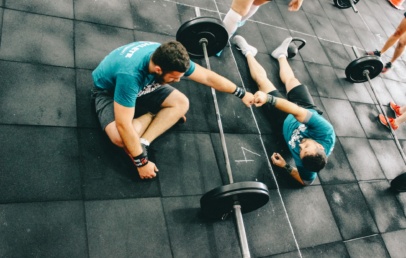
Can’t get ripped if you put in the wrong fuel.
A common misconception among those who are just starting out dieting is that all you need to do to get really buff is work out. Obviously, exercise is an important component in building muscle mass, but what’s arguably more important is what you eat while you exercise. Exercise is a very intense process for your body; it needs a very particular set of nutrients to turn exertion into gains. Otherwise, you’re just going to get tired and sore for nothing.
The most well-known work-out buddy is, of course, protein. Protein is the fuel your cells need to divide themselves and grow. After you exert yourself, your cells build up the parts of your muscles that were stressed or damaged in the process. Without a good cache of protein, not only will your muscles not grow after exercise, they could be damaged long-term. Meat is the most commonly accepted source of protein, but you can also get it from dairy and soy products.
Next is minerals. As I’m sure we all remember from those “Got Milk?” commercials, calcium is necessary for building strong bones and teeth. In addition to that, calcium, as well as other major minerals like potassium and magnesium, help your body maintain water balance and keep your skin healthy. You also need trace minerals like zinc, iron, and copper, which keep your blood vessels healthy and allow oxygen to travel through your blood stream. In order to ensure these minerals are carried through your body properly, though, you also need a good supply of vitamin D, which promotes mineral absorption, as well as immune system development.
Third is fat, often seen as the enemy of muscle. This is true for saturated and trans fats, but healthy fats promote cell growth and muscle development. Fat is also a good source of energy for your body to fall back on in case primary reserves run low, which is vital when you’re really pushing yourself. Speaking of energy, your body also needs carbohydrates. Carbs are one of the body’s main energy sources. Eat multigrain bread and veggies for simple carbs that your body can burn with minimal effort.
Finally, above all else, your body needs a steady supply of water. Up to 60% of the human body is made of water, and you want as much of the stuff as you can get. Dehydration can lead to dizziness and fatigue, which don’t mesh with high-intensity workouts. Always keep a source of clean, unsweetened water handy, both when you’re working out and when you’re just going about your day.




